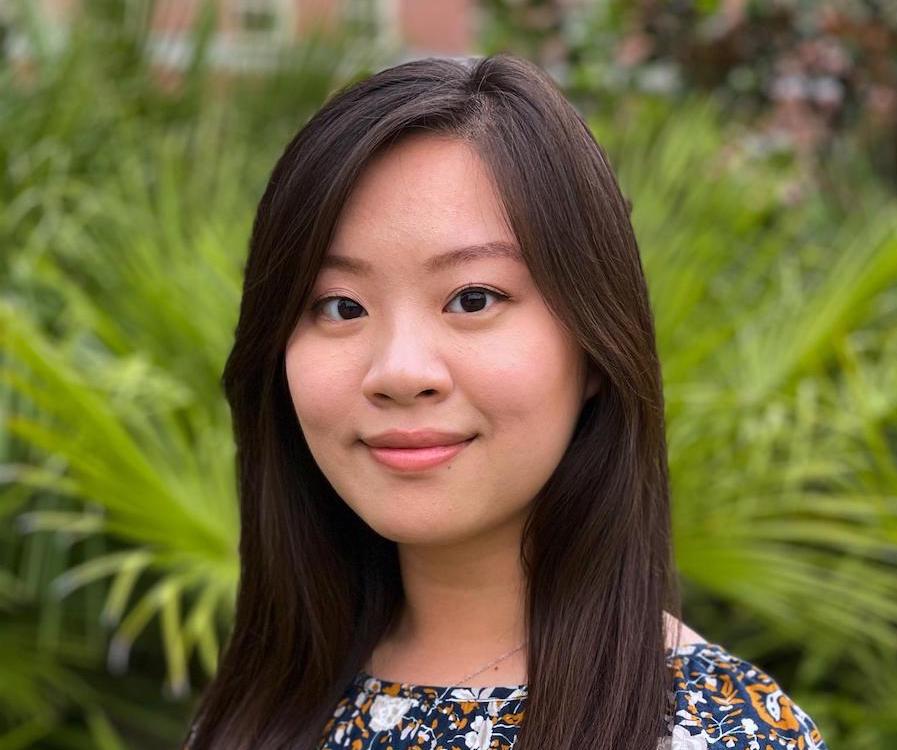
“I see music open people up. You can have a group of total strangers but the moment you start making music together, there is an instant connection.”
Tina Lu fell in love with playing piano when she was five. As she grew, her love for music deepened, her interests expanded and she knew she wanted to make her career in psychology or therapy.
When it came time for her to choose a course of study at Florida State University, music therapy was a natural fit.
“There are things that medicine can’t get to,” she said. “I see music open people up. You can have a group of total strangers but the moment you start making music together, there is an instant connection.”
She added: “When people react with musical elements, there is something magical that happens.”
While her love of music and interest in psychology spurred her, it is the prospect of embracing that magic and putting it to use to help people that has spurred Lu as she pursues her studies at FSU.
A rising senior, the Orlando resident said she has been fortunate to have opportunities at FSU that have enabled her to follow her passions. That journey started at her high school with her application to the Presidential Scholars program at FSU.
“Through my high school’s college and career center, I was introduced to the Presidential Scholars program and during the application and interview process, I had the opportunity to reflect on my own experiences and aspirations alongside what FSU offered,” she said. “I realized that FSU provides an extraordinary amount of support to undergraduate students through extensive research opportunities and unparalleled instructional quality. The Presidential Scholars Program allowed me to envision the numerous opportunities and support available to me at this institution which ultimately propelled me to commit to FSU.”
In 2019, Lu used part of her Presidential Scholar’s enrichment fund to travel to Beijing, China, where she shadowed music therapists at a facility for children with autism. While there, she participated in a local music festival for International Children’s Day.
Lu said the hands-on research experience expanded her thoughts on music therapy and community music and motivated her to continue to explore the field.
Additional opportunities have followed. Lu participated in the Undergraduate Research Opportunity Program (UROP) and this summer was awarded an IDEA grant to conduct an online choir, or e-choir, for people with aphasia, a language disorder affecting comprehension and verbal production.
Lu is already working on the project with fellow music therapy student Micah Castillo.
“We reached out to community organizations for people with aphasia and partnered with an interdisciplinary team of mentors and professional therapists,” she said. “We plan to conduct a 6-week choir and interview participants on their experiences. We will synthesize our findings into a protocol manual for future students to sustain the e-choir.”
Outside of her pursuits in music therapy, which include serving as treasurer of FSU’s student music therapy organization, Alpha Mu Alpha, Lu is deeply involved with the Asian-American Student Union. She’s also active in the InterVarsity Christian Fellowship, leading one of the organization’s “small” groups.
“This year has been particularly difficult for the Asian-American community,” she said.
“My work with the InterVarsity small groups for the Asian community has allowed me to understand and target the needs of these specific groups. Our small group has provided safe spaces and weekly support for Asian students, especially during the rising anti-Asian violence during COVID-19.”
As a student leader in the InterVarsity Christian Fellowship and Asian American Student Union, she served as one of the main organizers of the FSU/Tallahassee Candlelight Vigil for the Atlanta Spa Shooting victims.
Looking toward the future, Lu said she knows exactly what she wants to do and that using music to help heal will define that journey.
After completing a six-month internship and board certification to become a licensed music therapist, she hopes to eventually pursue a master’s or doctoral degree in a specialized approach of Music Therapy.
“I want to work with children with special needs and people with communication disorders while continuing to teach private piano lessons,” she said. “What I really need now,” she added with a laugh, “is more hands-on experience.”
As she prepares for her senior year at FSU, Lu said her experience had been everything she’d hoped.
“I expected FSU to be a place of opportunity where I could be free to explore the things I am drawn to,” she said. “It more than met that expectation. The quality of the musical education here and the faculty that I am so fortunate to study under have been amazing. I really didn’t realize how much I didn’t know.”
Lu said that as music therapy’s popularity continues to grow, she hopes that broader awareness will lead to more healing for more people.
“Music therapy has been getting a broader awareness, but I don’t think we’ve got the depth enough yet,” she said. “There’s so many layers to music therapy, so many different philosophies and different approaches. General public awareness could be deepened and broadened. But that can only happen by experiencing it.”
“Music really does something to us, to our brains and when you or someone you love experiences it, it changes your perspective.”




